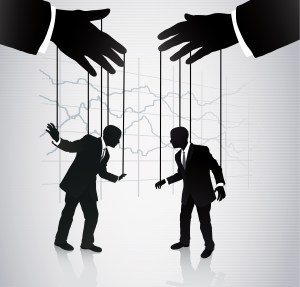The sign featured in the photograph preceding this article is referring to a mental health facility, which is affiliated with my place of employment for the summer. As you’ll notice, the sign simply states “Health Dept.,” failing to acknowledge the specific type of health that is addressed there. Keep this in mind.
It’s beginning to feel like everyday I learn that another one of my friends is medicated – anti-depressant, anti-anxiety, whatever it takes to numb the pain long enough to get a momentary grip on life. I hope you’ve never experienced it – that apathetic feeling; like life is aimless and moving like molasses… Like just existing in your own skin is unbearable. I am, unfortunately, primarily via personal experience, well versed in the causes of depression and anxiety; from hormonal imbalances to substantive trauma, the sciences have uncovered the root of these phenomena. I am grateful for all of the research and dedication that has been taken to uncover the sources of mental illness, but I do think that we tend to ignore the fundamental environmental contributions to such illness – those that are specific to the nature of capitalist society.
We tend to view depression and anxiety as personal troubles – something that the individual is supposed to sort out for themselves, maybe with the help of a therapist. While mental illness is most certainly very personal, our society has contorted the meaning of “personal” into “private,” as not to be shared with those who occupy any space outside of your innermost circle of family and friends – or, more often than I can bare, with anyone besides yourself. It’s much like the capitalist notion of private property – you own it, it’s yours, so you only share it with people you trust. As members of so-called “civilized” societies, we are accustomed to living subjectively, treating any sign of imperfection or personal struggle as weakness and embarrassment. Mental illness is not something we talk about – this, I believe, is one of the most crucial factors contributing to the intensity of such common mental illness as anxiety and depression.
Theories on class conflict from Marx’s and Engel’s The Communist Manifesto help to illuminate a better understanding of the nature of capitalism. Because we live within capitalism, many factors in our environment directly derive from capitalist values. In this classic text, the concept of alienation is discussed. The idea is that, since the workers do not own the means of production, and therefore do not own the product that they help create, they carry out their tasks without ever being able to directly benefit from the end product of their labor (the best example of this is factory work). Often times, the workers cannot even afford to purchase one of these products for themselves, given their despicably low wages. The situation in which the worker creates a product but isn’t able to benefit from/experience it and its impact, is one of alienation – the workers are alienated from the product of their labor.
While I may not be the first to have noticed this, parallels definitely run between the situations that workers find themselves in under capitalism, and the situation that we find ourselves in, mentally, under capitalism. While we, as workers, are systematically alienated by capital from the products of our labor, we are simultaneously alienated by both capital and societal norms, from seeking help. Capitalism contributes to this mental alienation in a myriad of ways.
Take, for example, the capitalist notion that everyone is an individual – unique, special, and distinctive. This is the type of individualism that aids profit growth because we’re constantly trying to update ourselves and seem at least a little bit better/cooler than the next guy. This stems from job market competition – why should we hire you? What makes you the best for this job? – as well as social satisfaction, which may very well have it’s roots in the former. The point is that the product market caters to these competitive cravings by offering every product in existence in any color, texture or pattern you could dream up, every opportunity to give you an edge and make you more marketable. And a large amount of corporate/bourgeois profit relies on feeding off of this materialized individuality that some how makes us feel both insecure and “special” when we have the things that “make” us ourselves.
But what if you were told that you’re not special? This is not to say that you don’t have your personal tastes, but rather that you’re not necessarily distinctive from the rest of the human population – other human beings similar to you actually do exist. It’s rather comforting, actually, to be told that you’re legitimately not alone. But, from a raw, capital-conditioned perspective, we would probably feel attacked or offended (I have qualities that matter!). The capitalist value of individualism is everywhere. Anything can be personalized, from the design on your debit card to your goddamned underwear, and while it’s nice to feel special, perhaps we’re going about it in the wrong way. Perhaps, the way that we’re used to feeling special is actually quite psychologically damaging.
In The Communist Manifesto, the following is stated: “The bourgeoisie cannot exist without constantly revolutionizing the instruments of production, and thereby the relations of production, and with them the whole relations of society.” However reluctant one may be to accepting Marxist ideology, there is clearly truth to that statement. If the bourgeoisie (i.e. the capitalist class) has control over the means of production (and, let’s be honest, they do), then it follows that they ultimately determine the products that we consume. If we take a moment to look at everything that is happening around us, we’re already behind on the next product or update (take the rapid generation of new iPhones every 6 months or so, for example). Truly, doesn’t it always seem to be the case that even when we don’t allow ourselves a beat of rest, we’re incessantly playing catch-up with the rest of the world (i.e. with the market)? And when this is happening, we’re feeling inadequate because we’ll never have all of the things that we feel we need to be current, in-the-know, and let’s not forget, unique.
1 in 10 Americans are roaming around feeling inadequate as we’re failing to catch up with the market and making ourselves unique; 1 in 10 are feeling socially alienated because we’re taught not to share, which is why 80% of those who experience depression go untreated. It’s rather tiring, living in this world, and it’s no wonder that the number of people diagnosed with depression increases by 20% each year.
It’s no wonder that suicide is the 10th leading cause of death among people older than 10 years of age.
This is not to say that capitalism outweighs the impact of trauma and/or brain chemistry on mental illnesses such as depression and anxiety, but it certainly does not make it any easier to cope. It is possible for society to reach a state where the stigma surrounding mental health no longer exists – where individuals will feel comfortable walking into labeled mental health facilities – but I worry that such a goal is unattainable in our environment.
Statistics from healthline.com and livescience.com











I hate to complain. I used to earn, by myself, about $10,000 or $15,000 a year. Now I am married to someone who earns about $80,000 a year and I am no longer working, instead I am taking care of our baby girl while wife goes to work. I feel I can’t relate to those people I know who earn much less. I can’t relate to those who earn just as much as my wife. The “lower classes” don’t seem to have political consciousness, and the “upper classes” don’t seem to either. Except I think everybody knows deep down what’s going on, but as you say, we don’t talk about it.
Really, capitalism is a sham. There is no free market. Wars, manipulation, resource grabs, corruption, move a lot more in this economy than our leaders are willing to admit. I took a freshman introduction to economics at University of Cincinnati. We were told the theoretical consumer or actor in the marketplace is someone with full knowledge of the situation. What consumer is given full knowledge of the market situation? GMOs are to be hidden, pesticides are hidden, lead is hidden, unethical origins and abuse of workers is hidden, negative health effects are hidden, subsidies to polluters and community destroying chains like Wal-Mart are hidden, tax benefits for the rich are usually obscured (although hopefully they are coming to be more commonly known for what they are, scams).
We need to learn history. But then we may still be alienated from one another and not have any political power. Is the internet a good enough connector? Do we need to return to old-fashioned community networks that operate by word of mouth so we return to dealing with living, breathing humans again?
I feel mostly alone in my thoughts, but your article was a good find.